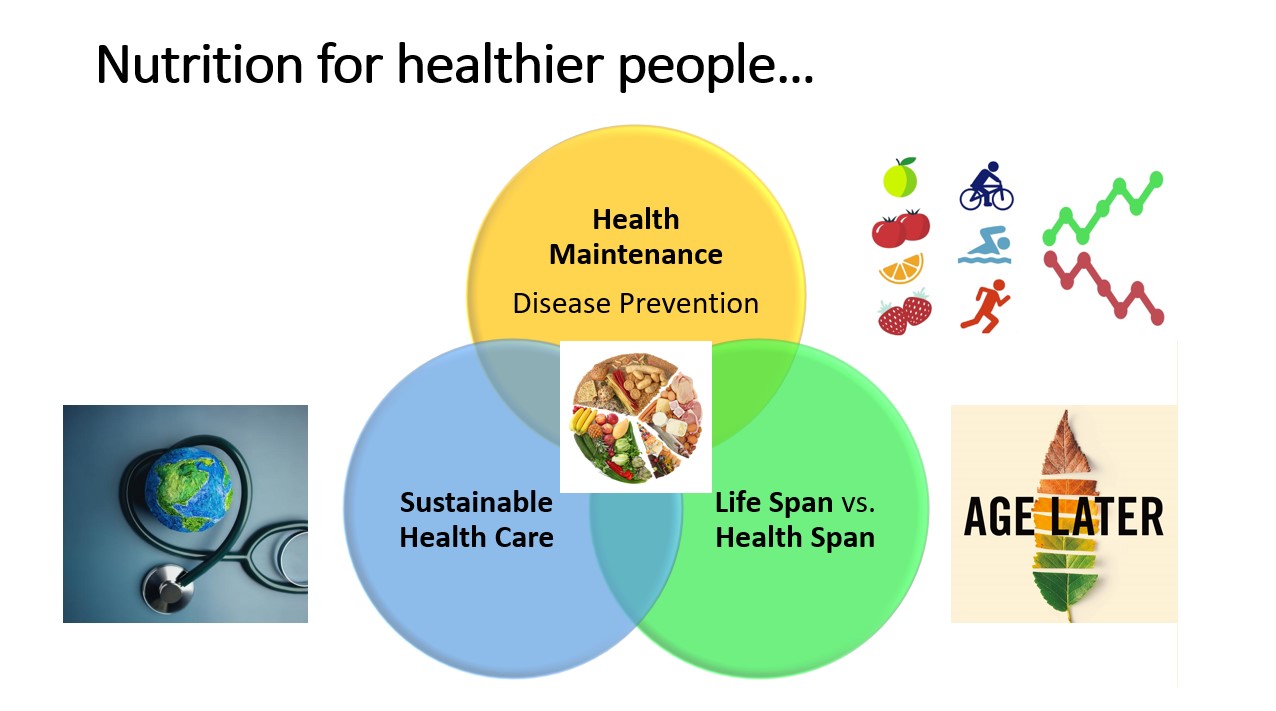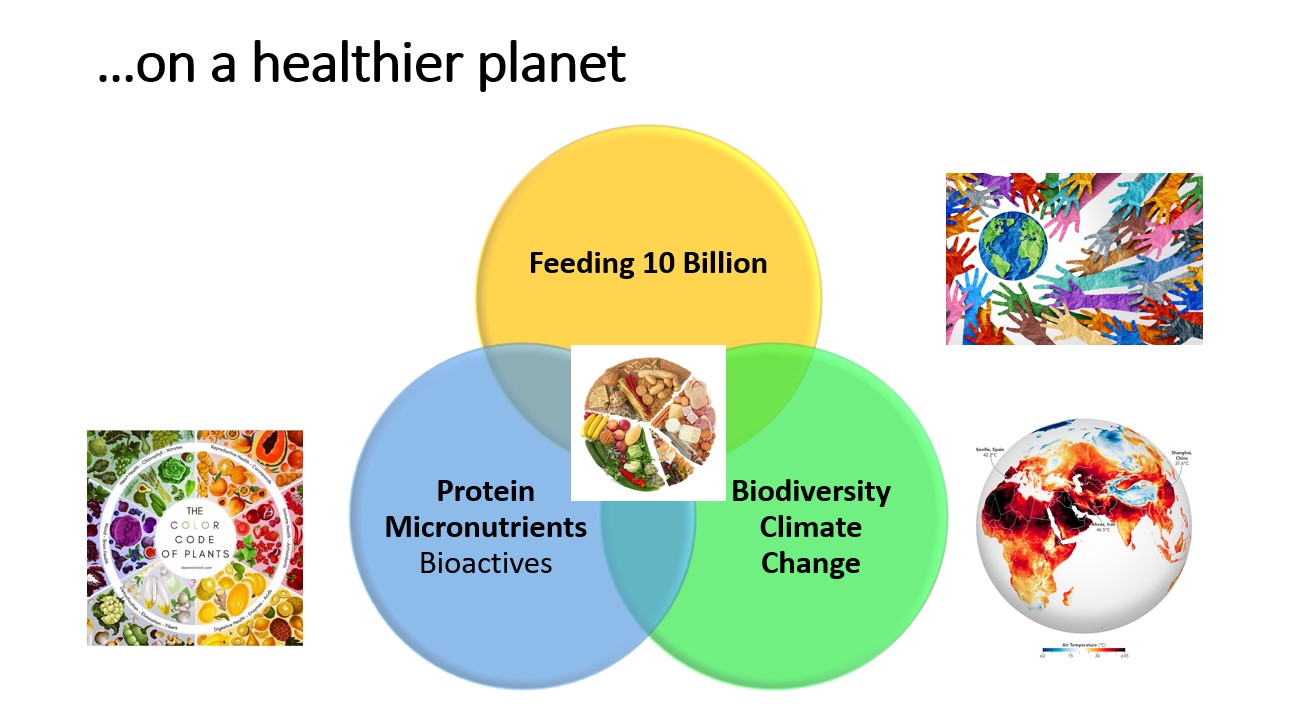
"Nutrition for Humanity in the Anthropocene - for Healthier People on a Healthier Planet" - Research Topic in 'Frontiers in Nutrition' 2022.

"Nutrition for Humanity in the Anthropocene - for Healthier People on a Healthier Planet" - Research Topic in 'Frontiers in Nutrition' 2022.
Local and global food systems enabled humans to inhabit virtually all ecological niches across the world. While the success of modern agriculture and food production has improved the overall nourishment of large parts of the global population (in terms of safety, calories, and nutrients), paradoxically, these advances are also associated with increased prevalence of chronic diseases. Energy-dense foods – often abundantly accessible and affordable – are a main contributor to this latter development. At the same time, nutrients are still unevenly distributed with two to three billion people lacking access to sufficient essential nutrients and an additional two billion people consuming too many calories and nutrient-imbalanced foods.
Climate change, population growth, increasing water scarcity, diminishing land resources, and socioeconomic and political factors will further challenge food production and distribution in the coming decades. Nutrient accessibility has become a global challenge for meeting nutritional requirements at different life stages in diverse populations.
Having advanced from the millennium development goals to the post-2015 UN sustainable development goals (SDG), global nutrition appears to require an improved operating system. Under current practices, feeding the still growing, yet soon plateauing world population necessitates closing a gap of nearly 70% between the amount of food available today and the projected availability by 2050. Today, globally, an estimated 800 million people are undernourished or food-insecure, yet one out of four calories from food goes uneaten. Meanwhile, overweight and obesity affect approximately two billion people, including 42 million children under the age of five.
Human and environmental health are both at stake. Agriculture alone accounts for about 70% of our global water usage and 25% of our greenhouse gas emissions. As a result, our strategies to overcome issues of food sustainability, food waste, and food loss must include, at the very least: improving the global consumption of food; increasing production efficiencies on existing agricultural land; and developing sustainable approaches that reduce the environmental impact of food production, in particular greenhouse gas emissions. The impact of agriculture on climate, ecosystems, and water must be reduced, while at the same time, we will need to ensure that it supports inclusive economic and social development. Sustainable nutrition is defined as the physical and economic access to sufficient, safe, and nutritious food and water to meet dietary and cultural needs and to enable an active and healthy lifestyle, without compromising the ability of future generations to meet these needs.
We have a planet in crisis on many fronts. The multi-sectoral vision of nutrition and health research and action has the potential to make meaningful and sustainable contributions.